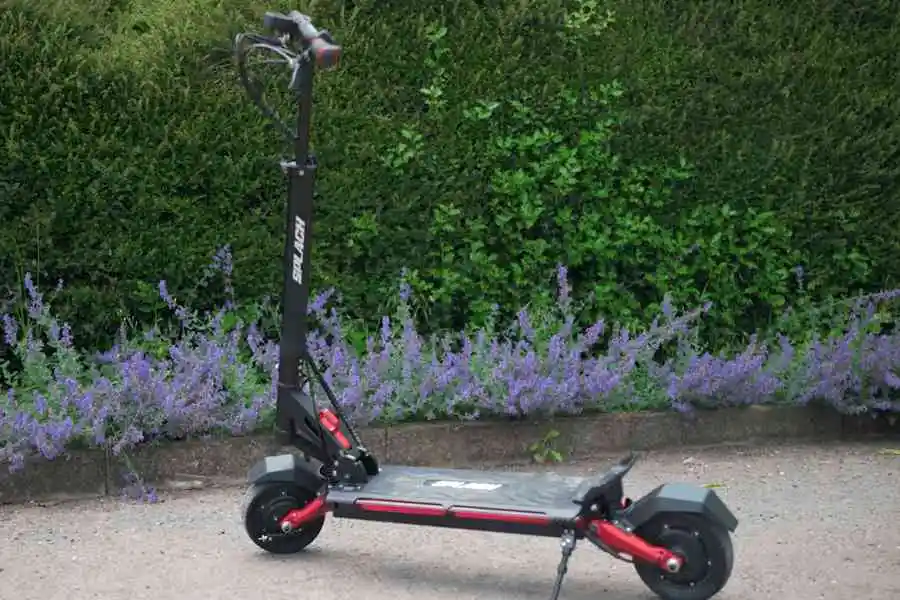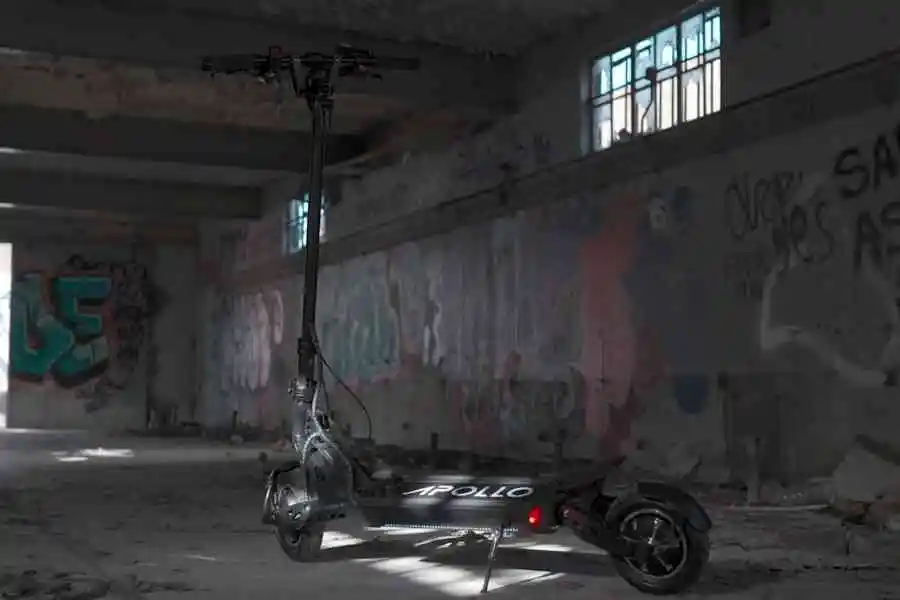In current instances, there was a great surge in the recognition of electrical scooters, typically known as electric Scooters, as an extremely convenient, price-effective, and green approach to transportation within urban environments.
Many individuals have embraced the usage of electric Scooters for their short-distance excursions, daily commuting wishes, or even leisurely explorations of the environment. It is worth highlighting that distinguished businesses together with Lime and Bird have added e-scooter rental offerings through consumer-pleasant cell applications, much like the nicely mounted platforms of Uber or Lyft.
Nevertheless, it is critical to recognize that the guidelines relating to electric Scooters range extensively from one kingdom to another. Pennsylvania, particularly, stands as a jurisdiction with stringent laws that significantly restrict the prison operation of e-scooters on public roads, making it a difficult enterprise for fans to experience within the bounds of the law.
If you find yourself taking into consideration the usage of e-scooters within the beautiful nation of Pennsylvania, it becomes vital to make yourself familiar substantially with the prevailing criminal framework and diligently live attuned to any ability future amendments that may rise on the horizon. By doing so, you could make certain compliance and make knowledgeable decisions regarding your e-scooter adventures within the Keystone State.
Table of Contents
Here are some of the most important things you need to know about Pennsylvania electric Scooter laws:
Electric Scooter Laws Pennsylvania
| Feature | Law |
|---|---|
| Maximum speed | 15 mph |
| Age requirement | 16 years old |
| Helmet requirement | Under 18 years old |
| Registration requirement | No |
| Insurance requirement | No |
| Operating on sidewalks | No |
| Operating on streets | No |
| Operating in bike lanes | Yes |
| Operating on multi-use paths | Yes |
| Operating on private property | Yes |
E-Scooters Are Considered Motor-Driven Cycles in Pennsylvania
When it involves the legal class of e-scooters in Pennsylvania, they are now not ruled by way of a particular regulation but are instead categorized as “motor-pushed cycles.” The kingdom’s definition of “motor-pushed cycles” encompasses any vehicle propelled by power assets aside from muscular electricity, designed to be ridden on two wheels. Consequently, electric Scooters are subjected to the identical set of policies and guidelines that govern motorcycles within the confines of Pennsylvania.

This implies that e-scooter riders need to adhere to the comprehensive framework of guidelines installed for motorcycles, ensuring compliance with safety requirements, licensing duties, and all different applicable stipulations.
By treating e-scooters as motor-pushed cycles, Pennsylvania reinforces the want for riders to method their operation with the identical level of responsibility and awareness as motorbike riders in the nation’s jurisdiction. With those considerations in mind, electric Scooter fanatics need to familiarize themselves with the precise policies that pertain to motor-pushed cycles, selling protection, and lawful operation throughout the vibrant landscapes of Pennsylvania.
Some of the rules and regulations to be aware of include:
- E-scooters must undergo the process of titling and registration with the Pennsylvania Department of Transportation (PennDOT).
- Adequate insurance coverage is mandatory for electric Scooters.
- Specific equipment, such as fenders, turn signals, lights, and mirrors, must be installed on e-scooters.
- E-scooters must successfully pass an annual safety inspection.
- E-scooter riders are required to possess a valid driver’s license. For electric Scooters with an engine size exceeding 50 cubic centimetres (cc), a Class M (motorcycle) license is necessary. If the e-scooter has an engine size below 50 cc, a Class car license suffices.
- Riders under the age of 21 must wear a helmet while operating an e-scooter.
- Carrying passengers is prohibited for electric Scooter riders.
Most E-Scooters Do Not Meet the Requirements to Be Legal in Pennsylvania
A significant challenge arises when attempting to enforce motorcycle regulations on e-scooters since the majority of electric Scooters fail to satisfy the legal requirements set forth in Pennsylvania. This disparity becomes apparent when considering the following aspects, for instance:

- The vast majority of e-scooters lack the requisite manufacturer’s certification label, which serves as evidence of their compliance with the Federal Motor Vehicle Safety Standards (FMVSS) specifically established for motorcycles.
- A significant portion of electric Scooters do not possess a vehicle identification number (VIN), a crucial requirement for the purpose of titling and registration.
- Many e-scooters are deficient in essential equipment, including fenders, turn signals, lights, and mirrors, as mandated by regulations.
- Furthermore, most e-scooters fail to attain the necessary speed to match the flow of regular traffic on public roads. Typically, electric Scooters have a maximum speed ranging from 15 to 20 miles per hour (mph), while motorcycles must be capable of reaching at least 25 mph.
Due to these factors, the majority of e-scooters face an effective prohibition in Pennsylvania. Their lawful operation is limited to private property with the explicit consent of the owner. Usage of electric Scooters on sidewalks, bike lanes, or public roads within Pennsylvania is strictly prohibited.
There Is a Bill to Change the Law and Allow electric Scooter in Pennsylvania
Several lawmakers in Pennsylvania apprehend the inherent price of e-scooters as a viable opportunity to automobiles and conventional modes of public transportation, especially in light of the continued COVID-19 pandemic.

They additionally acknowledge the potential blessings that e-scooters offer in phrases of easing visitor congestion, mitigating air pollution, and curtailing greenhouse gasoline emissions.
As a result, they have offered a bill to amend the modern-day country law and set up a committed category specially for e-scooters. This invoice, known as House Bill 1340 (HB 1340), become initially delivered in April 2021 and is currently being deliberated upon by using the House Transportation Committee.
If permitted, HB 1340 might introduce the following provisions:
- Define e-scooters as “electric low-pace scooters”, which might be “self-propelled motors with two or 3 wheels, handlebars, a status platform, and an electrically powered motor able to propel the car at quickens to 20 miles per hour on degree surfaces”.
- Permit electric Scooters to be operated on sidewalks, motorbike lanes, and public roads with a velocity restriction of 25 mph or lower until restrained by local guidelines.
- Exempt e-scooters from requirements such as titling, registration, insurance, inspection, licensing, and helmet usage.
- Mandate that electric Scooter riders adhere to the same traffic regulations as bicycles, including yielding to pedestrians, signalling turns, and stopping at red lights.
- Establish a minimum age requirement of 16 years for e-scooter riders.
- Impose the responsibility on e-scooter rental companies to provide safety information and equipment to their customers.
House Bill 1340, commonly known as HB 1340, strives to significantly improve the accessibility and safety of e-scooter utilization throughout the state of Pennsylvania. Its primary objective is to create a conducive environment for more cities to emulate Pittsburgh’s commendable initiative in launching electric scooter sharing programs.
However, it is worth noting that the bill confronts formidable challenges and resistance from various entities, such as the Pennsylvania Motor Truck Association and the Pennsylvania State Police. As a result, the future trajectory and timeframe for the successful passage of HB 1340 into law remain indeterminate and subject to ongoing deliberation and negotiation.
Conclusion
Electric scooters offer a delightful and convenient mode of transport within urban areas, infusing daily commutes with a touch of joy and ease. However, their legality in Pennsylvania is bound by specific limitations that curtail their widespread usage.
According to the state’s classification, e-scooters are regarded as motorcycles, subjecting them to a range of requirements that the majority of electric scooters cannot fulfill. Presently, Pennsylvania permits e-scooters exclusively for use on privately owned properties, confining their potential benefits to restricted areas.
Nonetheless, there is room for optimism as a promising bill is currently progressing through the legislative process. This bill seeks to reshape existing laws, bestowing upon e-scooters the freedom to traverse sidewalks, bike lanes, and low-speed roads throughout the state.
This potential amendment opens up a realm of possibilities, envisaging a future where electric scooters seamlessly integrate into the tapestry of urban mobility.
In light of these advancements, individuals must acquaint themselves with prevailing regulations while remaining vigilant to forthcoming changes. By staying informed and aware, those who yearn to embrace the convenience and environmentally friendly attributes of e-scooters can navigate the current landscape and adapt to the evolving legal framework in Pennsylvania.
The data source for all images and details: YouTube
FAQ section
Can I ride an electric scooter on the sidewalk in Pennsylvania?
No, in Pennsylvania, electric scooters are prohibited from being used on sidewalks. According to the classification of “motorized vehicles,” they are exclusively permitted on designated bike paths and trails.
Do I need a license to ride an electric scooter in Pennsylvania?
Yes, in order to operate an electric scooter in Pennsylvania, you must possess a valid driver’s license. Additionally, you must meet the minimum age requirement of 16 years old.
Do I need to register my electric scooter in Pennsylvania?
Yes, prior to riding your electric scooter on public roads in Pennsylvania, it is necessary to register it with the Pennsylvania Department of Transportation (PennDOT). The registration fee amounts to $9.
Do I need insurance to ride an electric scooter in Pennsylvania?
Yes, it is required to possess liability insurance coverage with a minimum of $50,000 per individual and $100,000 per incident.
Do I need to wear a helmet to ride an electric scooter in Pennsylvania?
Yes, wearing a helmet is mandatory when riding an electric scooter in Pennsylvania. Helmets must be worn at all times.
Join the electric revolution with Tensela - your gateway to a greener future on two wheels!
